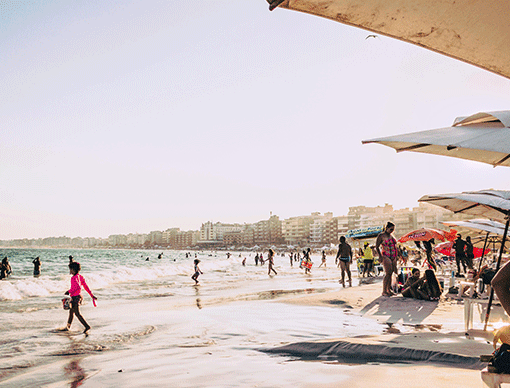Research Insights
Fast Facts: Traveler Sentiment in the Age of COVID-19
Phocuswright surveyed travelers from the U.S., the U.K., France and Germany to understand how traveler sentiment has evolved during the coronavirus pandemic. We asked questions about their intent to cancel or postpone their travels, their biggest fears about traveling, satisfaction with companies when changing their travel plans, and more.
On April 23rd, Phocuswright analysts will present the full findings and insights into the implications for the global travel industry. This event will give viewers a direct feel for consumer intent, coupled with analysis from our seasoned researchers. Register for the live event here.
(WORK ON KEVIN / CHARUTA FOR THE BELOW)
In this presentation, you will:
On April 23rd, Phocuswright analysts will present the full findings and insights into the implications for the global travel industry. This event will give viewers a direct feel for consumer intent, coupled with analysis from our seasoned researchers. Register for the live event here.
(WORK ON KEVIN / CHARUTA FOR THE BELOW)
In this presentation, you will:
- Learn about travelers' intentions for traveling in the next 3 months
- Understand traveler sentiment around traveling again
- Discover what fears travelers have about traveling
- Know the outlook and optimism travelers have for recovery
- See the confidence travelers' have in their government's response
- more
Placeholder text - images to come
Cancel or postpone
Most commonly, those who plan on traveling for leisure between the end of March and 6/30/20 have chosen to postpone their trips. 33% (US) and 39% (UK) have postponed their soonest upcoming leisure trips. Cancelling was the next most common option (29% US, 30% UK)
When it comes to what planned travelers (between the end of March and end of June) choose to do with their plans, France and Germany are both consistent with the US/UK. Postponement is the most common reaction, with 37% of planned travelers in France and 36% in Germany having postponed their soonest upcoming leisure trips. Cancelling was the next most common option in both of these markets (26% FR, 25% DE)
Optimism about return to travel
Leisure trip postponers are optimistic about being able to travel within the next few months. 61% of postponers in the US and 48% in the UK have postponed by 1-6 months.
French and German planned leisure travelers are even more hopeful than the US/UK respondents that they can travel within the next few months. 74% of postponers in the FR and 64% in DE have postponed by 1-6 months.
Fears while traveling
Both markets rank becoming ill at destination, becoming ill in transit, and being quarantined at destination/upon return as the three biggest psychological barriers to traveling as planned
In the US, the fear of becoming ill in transit is particularly pronounced with air travelers. (70% of leisure air travelers as a reason to change their plans, vs. 45% of those whose plans didn't involve airfare)
Germany was the only market surveyed that feared being quarantined during/after travel more than becoming sick. Their three top-ranked concerns for traveling in the coming months were risk of being quarantined, risk of becoming ill at destination, or hotels/restaurants/bars being closed at their destination
Top barriers to upcoming travel in France included becoming ill in transit, hotels/restaurants/bars being closed at the destination, and risk of becoming ill at the destination
Satisfaction with travel companies‘ response
Leisure travel providers have handled travel changes and cancellations well overall. 64% of people who changed their plans in the US and 60% in the UK have rated satisfaction 4 or above on a scale of 1-5.
French and German planned travelers also express a strong sense of satisfaction with any travel providers who had to process changes or cancellations. 53% of planned travelers in France and 60% in Germany who had to make provider changes rated satisfaction a 4 or above on a scale of 1-5.
Cues for traveling again
In the US, drop in infection rates is the number one change both business and leisure travelers would look for to indicate it's safer to travel again. In the UK, business and leisure travelers cite official government advisories as the top change that would increase their/their employers' openness.
Both Germany and France would look for a drop in infection rates as the number one cue that would open them up to traveling again, for both leisure and business travel
Reaction to government response
Ultimately, planned travelers in the US and the UK have a strong sense of approval for what the stringency of government restrictions on travel. 44% of planned travelers in the US and 46% in the UK say that their governments' current travel restrictions are "just right"
French planned travelers were more comfortable with the government's approach to travel restrictions than any other market surveyed: only 14% surveyed felt the new policies were overly strict.
Cancel or postpone
Most commonly, those who plan on traveling for leisure between the end of March and 6/30/20 have chosen to postpone their trips. 33% (US) and 39% (UK) have postponed their soonest upcoming leisure trips. Cancelling was the next most common option (29% US, 30% UK)
When it comes to what planned travelers (between the end of March and end of June) choose to do with their plans, France and Germany are both consistent with the US/UK. Postponement is the most common reaction, with 37% of planned travelers in France and 36% in Germany having postponed their soonest upcoming leisure trips. Cancelling was the next most common option in both of these markets (26% FR, 25% DE)
Optimism about return to travel
Leisure trip postponers are optimistic about being able to travel within the next few months. 61% of postponers in the US and 48% in the UK have postponed by 1-6 months.
French and German planned leisure travelers are even more hopeful than the US/UK respondents that they can travel within the next few months. 74% of postponers in the FR and 64% in DE have postponed by 1-6 months.
Fears while traveling
Both markets rank becoming ill at destination, becoming ill in transit, and being quarantined at destination/upon return as the three biggest psychological barriers to traveling as planned
In the US, the fear of becoming ill in transit is particularly pronounced with air travelers. (70% of leisure air travelers as a reason to change their plans, vs. 45% of those whose plans didn't involve airfare)
Germany was the only market surveyed that feared being quarantined during/after travel more than becoming sick. Their three top-ranked concerns for traveling in the coming months were risk of being quarantined, risk of becoming ill at destination, or hotels/restaurants/bars being closed at their destination
Top barriers to upcoming travel in France included becoming ill in transit, hotels/restaurants/bars being closed at the destination, and risk of becoming ill at the destination
Satisfaction with travel companies‘ response
Leisure travel providers have handled travel changes and cancellations well overall. 64% of people who changed their plans in the US and 60% in the UK have rated satisfaction 4 or above on a scale of 1-5.
French and German planned travelers also express a strong sense of satisfaction with any travel providers who had to process changes or cancellations. 53% of planned travelers in France and 60% in Germany who had to make provider changes rated satisfaction a 4 or above on a scale of 1-5.
Cues for traveling again
In the US, drop in infection rates is the number one change both business and leisure travelers would look for to indicate it's safer to travel again. In the UK, business and leisure travelers cite official government advisories as the top change that would increase their/their employers' openness.
Both Germany and France would look for a drop in infection rates as the number one cue that would open them up to traveling again, for both leisure and business travel
Reaction to government response
Ultimately, planned travelers in the US and the UK have a strong sense of approval for what the stringency of government restrictions on travel. 44% of planned travelers in the US and 46% in the UK say that their governments' current travel restrictions are "just right"
French planned travelers were more comfortable with the government's approach to travel restrictions than any other market surveyed: only 14% surveyed felt the new policies were overly strict.











